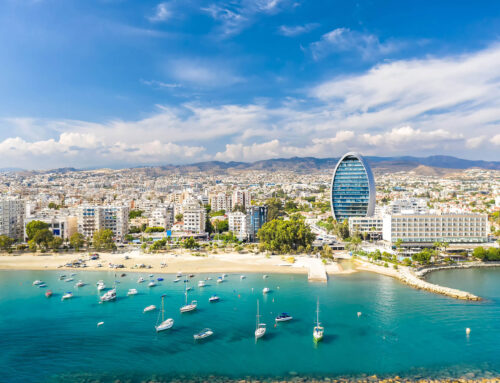Nestled in the azure waters of the Mediterranean, the Ionian Islands are a group of seven Greek islands known for their stunning landscapes, rich history, and distinct culinary traditions. Influenced by both Greek and Italian cultures, the regional cuisine of the Ionian Islands is a delightful fusion of flavors that reflects the islands’ unique history and location. In this comprehensive guide, we explore the culinary treasures of the Ionian Islands, highlighting the ingredients, dishes, and cooking techniques that have defined their gastronomic identity.
History and Influences
The Ionian Islands have a diverse cultural history, with influences from ancient Greece, the Byzantine Empire, Venice, and the Ottoman Empire. The Venetian rule, in particular, has left a lasting impact on the local cuisine, which blends traditional Greek ingredients with Italian culinary techniques. This unique blend of flavors sets the Ionian Islands apart from other Greek regional cuisines.
Key Ingredients
Olive Oil
A staple of Mediterranean cuisine, olive oil is the foundation of Ionian Island dishes. The region is known for producing high-quality olive oil with a fruity, mildly peppery taste.
Fresh Seafood
Surrounded by the Mediterranean Sea, the Ionian Islands have an abundance of seafood. Fresh fish, squid, octopus, and shellfish are common ingredients in local dishes.
Seasonal Vegetables
The islands’ fertile soil produces a rich variety of fresh, seasonal vegetables, such as tomatoes, eggplants, bell peppers, and zucchini, which are used in numerous dishes.
Herbs and Spices
Ionian cuisine relies heavily on the use of fresh herbs, such as basil, oregano, rosemary, and thyme, as well as spices like cinnamon, cloves, and allspice, adding depth and complexity to the flavors.
Pasta
As a result of Italian influences, pasta is more common in the Ionian Islands than in other regions of Greece. Dishes like pastitsio, a Greek-style lasagna, are popular throughout the islands.
Signature Dishes
Sofrito
A traditional dish of Corfu, sofrito is a delicious blend of slow-cooked beef in a rich sauce made from garlic, white wine, vinegar, and a variety of herbs. It is often served over rice or mashed potatoes.
Pastitsada
Originating from the island of Kefalonia, pastitsada is a hearty stew made with rooster or chicken, cooked in a tomato-based sauce with red wine, onions, cinnamon, and cloves. It is traditionally served with thick pasta, like bucatini or rigatoni.
Bianco
A popular fish dish from the Ionian Islands, bianco consists of white fish cooked in a lemony, garlic-infused olive oil sauce. The dish is typically served with crusty bread to soak up the flavorful sauce.
Savoro
A classic Ionian dish, savoro is made with fried fish, marinated in a tangy sauce of rosemary, garlic, vinegar, and raisins. The dish is often garnished with toasted pine nuts or almonds.
Cooking Techniques and Traditions
Slow Cooking
Many Ionian dishes, such as sofrito, are prepared using the slow-cooking method, which allows the flavors to develop and meld together over time. This technique results in tender, succulent meats and rich, flavorful sauces.
Grilling
Fresh seafood and meats are often grilled on charcoal, infusing the ingredients with a smoky flavor that is characteristic of Ionian cuisine. The simplicity of grilling allows the quality and freshness of the ingredients to shine through.
Baking
Traditional Ionian cuisine features several baked dishes, such as pastitsio and moussaka, which showcase the region’s affinity for Italian-influenced pasta and the use of local vegetables and cheeses.
Marinating
Ionian recipes often call for marinating meats and fish in flavorful concoctions of herbs, spices, and vinegar or citrus juices. This technique not only enhances the flavors but also tenderizes the ingredients, creating mouthwatering dishes like savoro.
Wine and Beverages
The Ionian Islands are also known for their winemaking traditions, with local vineyards producing a variety of both red and white wines. Robola, a native white grape variety, is particularly renowned and produces crisp, refreshing wines with citrus and mineral notes. Other popular local wines include the red Mavrodaphne, known for its velvety texture and dark fruit flavors, and the dessert wine Muscat of Cephalonia, which boasts a rich, honeyed sweetness.
In addition to wine, traditional beverages such as ouzo, an anise-flavored liqueur, and tsipouro, a strong, clear spirit made from grape pomace, are commonly enjoyed as aperitifs or digestifs in the Ionian Islands.
By diving into the regional cuisine of the Ionian Islands, you’ll find a rich tapestry of flavors and culinary traditions that reflect the unique history, culture, and geography of this enchanting corner of the Mediterranean. Whether you’re a culinary arts student, a professional chef, a researcher, or simply a food enthusiast, the Ionian Islands offer a diverse and delectable gastronomic journey that is sure to inspire and delight.
Local Desserts and Sweets
The regional cuisine of Crete boasts a variety of iconic dishes that highlight the island’s culinary traditions and agricultural bounty. Some of these signature dishes include:
Mandolato
A traditional nougat from the Ionian Islands, mandolato is made with honey, sugar, egg whites, and roasted almonds. The confection is often flavored with vanilla or citrus zest, and it is enjoyed as a festive treat during holidays and celebrations.
Pastafrola
With origins in both Greece and Italy, pastafrola is a shortcrust pastry tart filled with fruit preserves or marmalade, often made with local apricots, figs, or quince. The lattice-topped dessert is a popular sweet treat in the Ionian Islands, enjoyed with a cup of coffee or tea.
Amygdalota
These almond-based cookies are a delightful gluten-free treat, made with ground almonds, sugar, and egg whites. Often flavored with rosewater or orange blossom water, amygdalota are commonly served at weddings and other special occasions.
Loukoumades
A popular dessert throughout Greece, loukoumades are deep-fried dough balls that are crispy on the outside and soft on the inside. In the Ionian Islands, they are often drizzled with honey, dusted with cinnamon, and garnished with crushed walnuts or toasted sesame seeds.
Food Festivals and Events
The Ionian Islands are home to numerous food festivals and events that showcase and celebrate the region’s culinary heritage. These occasions offer visitors the opportunity to taste authentic Ionian dishes, learn about local cooking techniques and traditions, and experience the vibrant culture of the islands.a
Robola Wine Festival
Held annually in August on the island of Kefalonia, this festival celebrates the local Robola wine, featuring wine tastings, live music, and traditional Ionian food.
Corfu Beer Festival
Taking place in October, the Corfu Beer Festival is a five-day event showcasing the island’s local breweries, traditional foods, and live music, fostering a sense of community and camaraderie.
Zakynthos Carnival
The Zakynthos Carnival, held in February, is a lively celebration with parades, music, and dancing, where visitors can enjoy the island’s local delicacies, sweets, and beverages.
As you delve deeper into the regional cuisine of the Ionian Islands, you’ll find a culinary paradise brimming with diverse flavors, time-honored traditions, and innovative techniques. The islands’ unique gastronomic offerings are a testament to their rich history and cultural influences, making the Ionian Islands an essential destination for culinary enthusiasts around the world.
Sustainable and Local Dining
As interest in sustainable dining and farm-to-table experiences grows, the Ionian Islands are embracing their natural resources and local producers. Many restaurants and tavernas prioritize the use of seasonal, locally sourced ingredients, supporting farmers, fishermen, and artisans in the region. This commitment to sustainability and community not only preserves traditional Ionian culinary practices but also ensures that visitors can savor the freshest, most authentic flavors the islands have to offer.
In conclusion, the regional cuisine of the Ionian Islands is a captivating fusion of flavors and traditions that reflects the area’s diverse cultural history and abundant natural resources. By exploring the islands’ signature dishes, local ingredients, cooking techniques, and culinary experiences, visitors can gain a profound appreciation for this unique gastronomic destination. Whether you’re a professional chef, a culinary arts student, a researcher, or simply a passionate food lover, the Ionian Islands offer a wealth of culinary inspiration and delight, waiting to be discovered.



